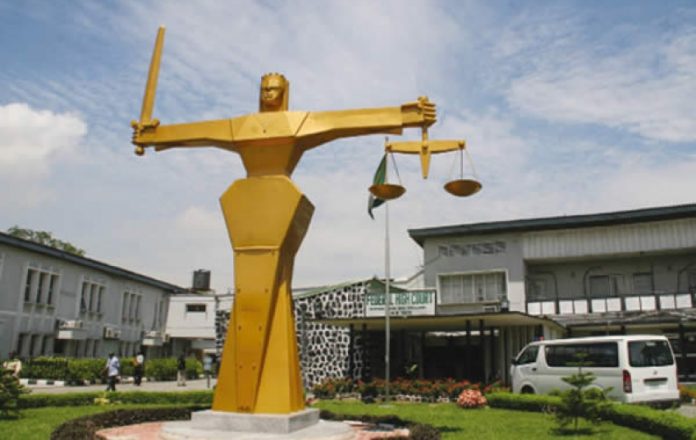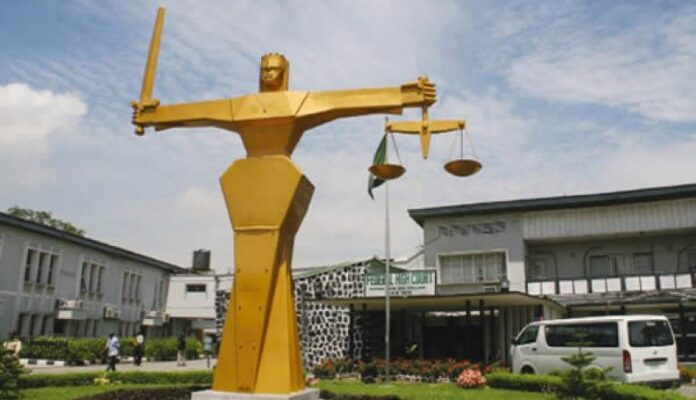
A Federal High Court in Lagos has made absolute an Order Decree Nisi it granted in favour of Fidelity Bank Plc against Kehinde Eliot Ogbor and Danium Energy Services Limited, who are allegedly owing the bank a judgment debt of N7.3billion.
Justice Daniel Osiagor made the order sequel to a motion filed and argued by the bank’s counsel Mr. Tokunbo Davies of Kemi Pinheiro LP.
The proceedings arose from a February 28, 2019 judgment of Justice Rilwan Aikawa in an undefended suit marked FHC/L/CS/1020/2017 which held that Ogbor and Danium Energy Services were indebted to Fidelity to the tune of over N7billion.
“At the rate of 22% per annum from 24th March, 201 7, till total liquidation of same being the outstanding amount on the credit facility granted to the 2nd Defendant and duly guaranteed by the 1st Defendant (Ogbor).”
On January 17, 2020, the bank, via a motion ex parte of June 19, 2019, approached Justice Aikawa for an order nisi against the alleged judgment debtors’ accounts in 22 banks.
Granting the application, the judge held: “It is hereby ordered as follows: That an Order Nisi is granted against the named Garnishees as shown in the Motion Ex-parte.
“That the Garnishees shall appear to Ikoyi, Lagos to show cause why the order should not be made absolute.”
When the bank approached Justice Osiagor on Wednesday, Davies informed the court that the matter was slated for address on the issue of disputed service of the order nisi and originating processes on the judgment debtor as raised in the judgment debtors’ motion to set aside the order nisi.
Referencing Order 6 Rule 1 of the FHC Civil Procedure Rules, 2019, Davies argued that a party via his solicitor may serve the originating process on parties and provide proof of such service before the Court, adding that this was done and proof of service was before the court.
He further informed the Court that the defendant filed a memorandum of conditional appearance which confirmed that they were served with the originating processes.
He told the court that the defendants were served the order nisi, adding, among others, that the application disputing service was “simply a ruse” by the judgment debtor to deprive the judgment creditor the possibility of reaping the fruit of its judgment.
Responding, counsel to the judgment debtors, L.O. Eriaremien, argued that they were not served with the originating processes and prayed the court to set aside the order nisi.
In a bench ruling, Justice Daniel Osiagor held that the service of the Originating Process and Order Nisi were proper and in accordance with the court’s rules, as there was proof of service in the court’s file.
The judge dismissed the motion to set aside the order nisi for non-service and made the order nisi absolute.

Comments